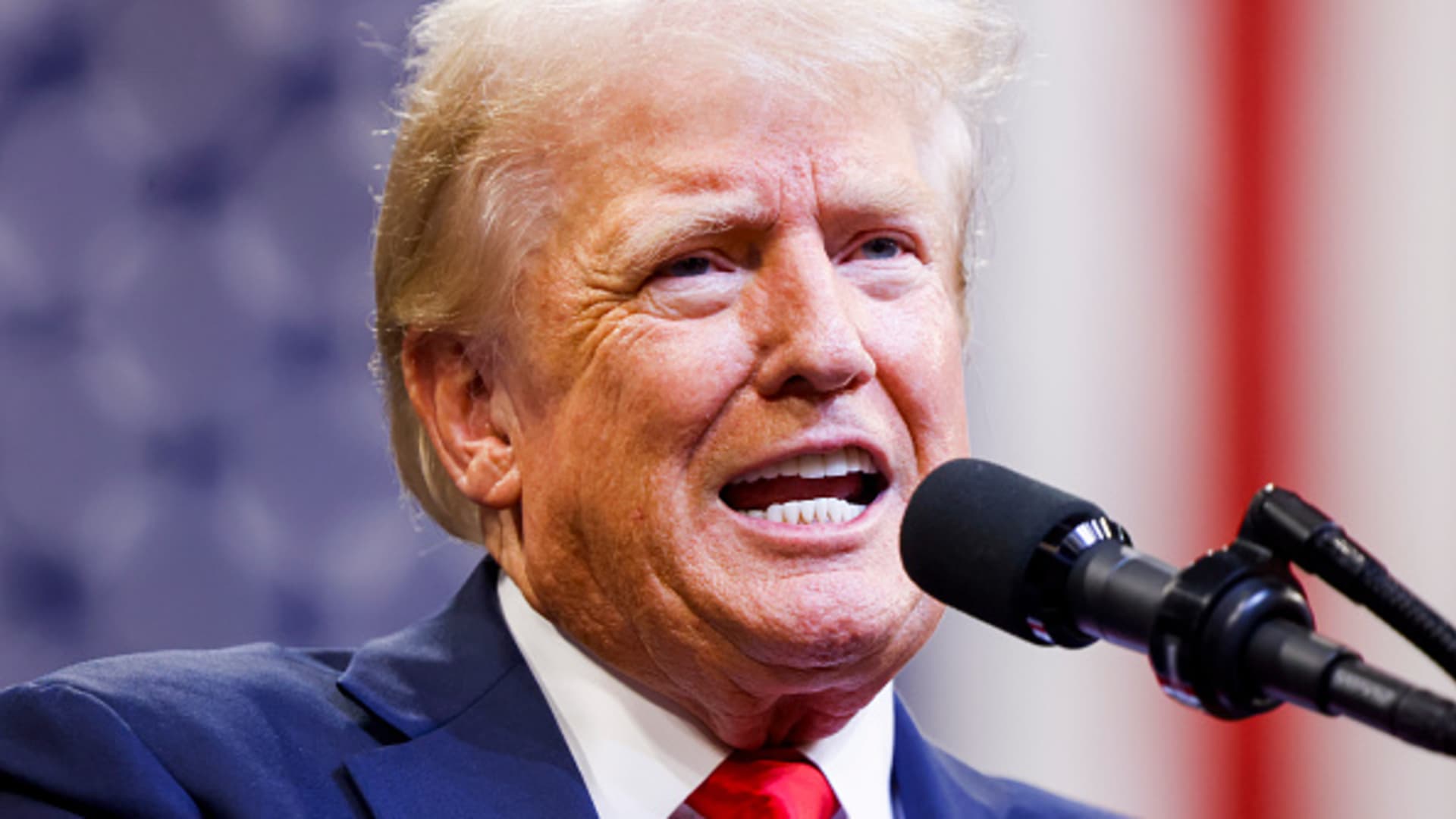An attorney for former President Donald Trump has filed a legal notice announcing that his client plans to sue the Justice Department and the FBI for $115 million for alleged “malicious political prosecution” and “abuse of process.”
The notice, a copy of which NBC News obtained Monday, baselessly accuses DOJ leadership and Special Counsel Jack Smith of having perpetrated a “malicious political prosecution aimed at affecting an electoral outcome to prevent President Trump from being re-elected” — a frequent accusation that Trump makes online and during campaign events.
“This malicious prosecution led President Trump to spend tens of millions of dollars defending the case and his reputation,” Trump attorney Daniel Z. Epstein wrote in a notice of claim against the department. Epstein is a former Trump White House lawyer who is now vice-president of America First Legal, the legal group founded by former Trump adviser Stephen Miller.
The filing complains that the FBI’s court-approved search for classified documents at Trump’s Florida estate in August of 2022 was improper, as was Trump’s subsequent indictment for the scores of sensitive classified documents that agents turned up during the search. Trump had pleaded not guilty.
The filing, which was first reported by Fox News, said the search violated “well-established protocol” involving former presidents and cites a Trump social media post after the search saying the government could have had the records “anytime they wanted.”
“All they had to do was ask,” the Truth Social post said. The filing does not mention the multiple requests from the National Archives and the Justice Department for Trump to return the records. The DOJ had also issued a subpoena for the return of such documents in May of 2022, and an attorney for Trump signed a declaration stating they had all been returned that June. The search warrant was executed after investigators got information that they had been misled.
The notice of claim maintains DOJ’s “process” was “unconstitutional.”
It says Smith “brought a lawless criminal indictment” that stemmed from the search in July of last year, and noted that the case was dismissed by U.S. District Judge Aileen Cannon last month. Cannon, who Trump nominated to the bench, dismissed the case on the grounds that Smith’s appointment as special counsel and the funding for his probe were illegal.
Other federal judges have rejected similar arguments involving previous special counsels. Smith is appealing Cannon’s decision.
The Justice Department declined to comment.
Steven Cheung, a spokesperson for Trump’s campaign, said the action is part of Trump’s fight against the “weaponized Department of Justice” and that the criminal case against Trump “should be immediately dismissed in order to bring unity back to our Nation.”
The notice filed by Trump is a necessary step in filing most civil damages claims against the government. There is no concrete time limit for a response, but if a claimant has not received a “final disposition” within six months of sending the claim, then the claimant can treat that silence as a denial and file suit. The filing suggests that the suit would be filed in the same Florida district where Cannon sits.
The filing was signed on Aug. 7, one day before the two-year anniversary of the search. The claim form says “Failure to completely execute this form or to supply the requested material within two years from the date the claim accrued may render your claim invalid.”
The filing says Trump is seeking “$15 million in actual harm due to his legal costs in defending the Special Counsel proceedings before the U.S. District Court for the Southern District of Florida.” It’s unclear how much of that money came from Trump personally. NBC News has reported previously that Trump appeared to be using money from a political action committee for his legal fees.
He’s also seeking $100 million in punitive damages.
In a pending appeal of writer E. Jean Carroll’s $83 million defamation verdict against Trump, his attorneys have argued the verdict should be reduced in part because the punitive damages are about four times the amount of the compensatory damages. The amount he’s seeking in this case is over six times the amount of compensatory damages.
It’s unclear what would happen to the action if Trump is elected president again in November, and whether he would be able to direct the Justice Department to pay what he’s seeking.

 Blog Post1 week ago
Blog Post1 week ago
 Economics1 week ago
Economics1 week ago
 Finance1 week ago
Finance1 week ago
 Personal Finance1 week ago
Personal Finance1 week ago
 Accounting1 week ago
Accounting1 week ago
 Economics1 week ago
Economics1 week ago
 Personal Finance6 days ago
Personal Finance6 days ago
 Personal Finance1 week ago
Personal Finance1 week ago









